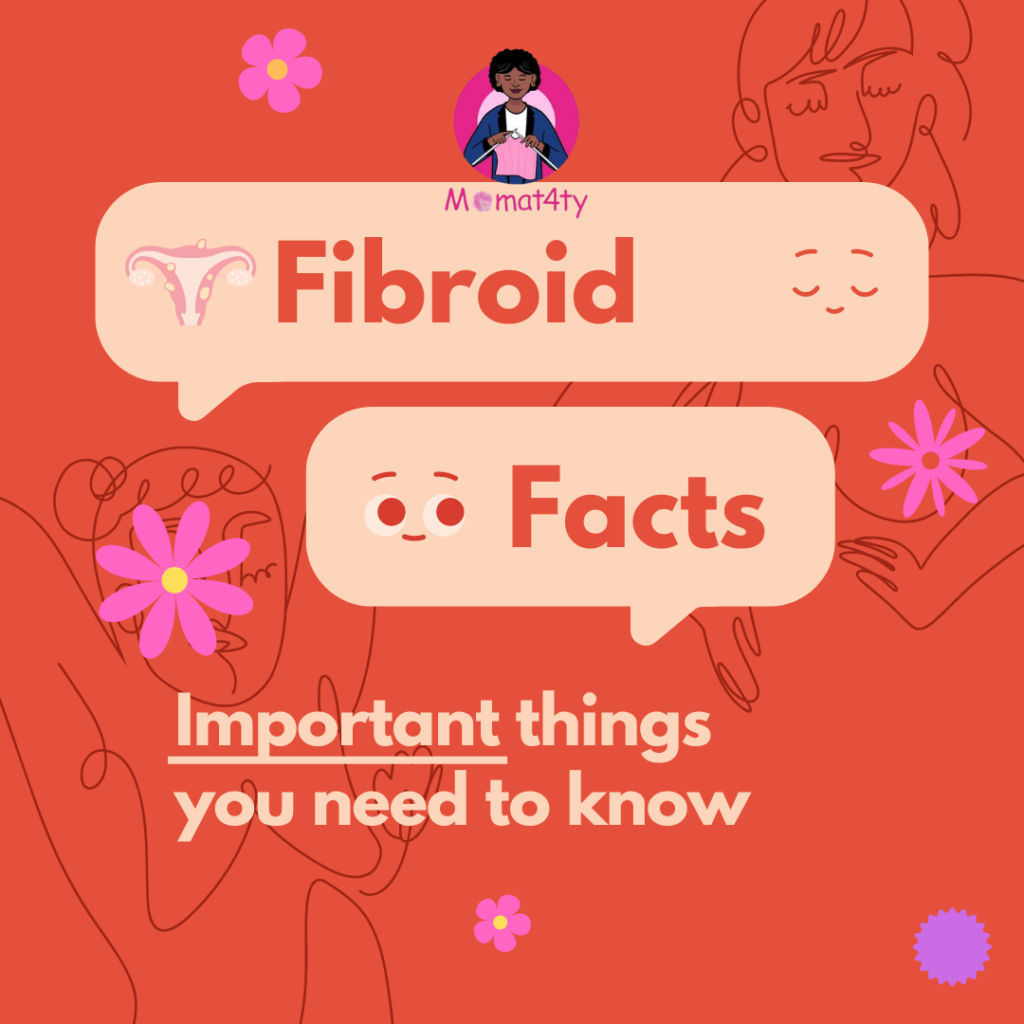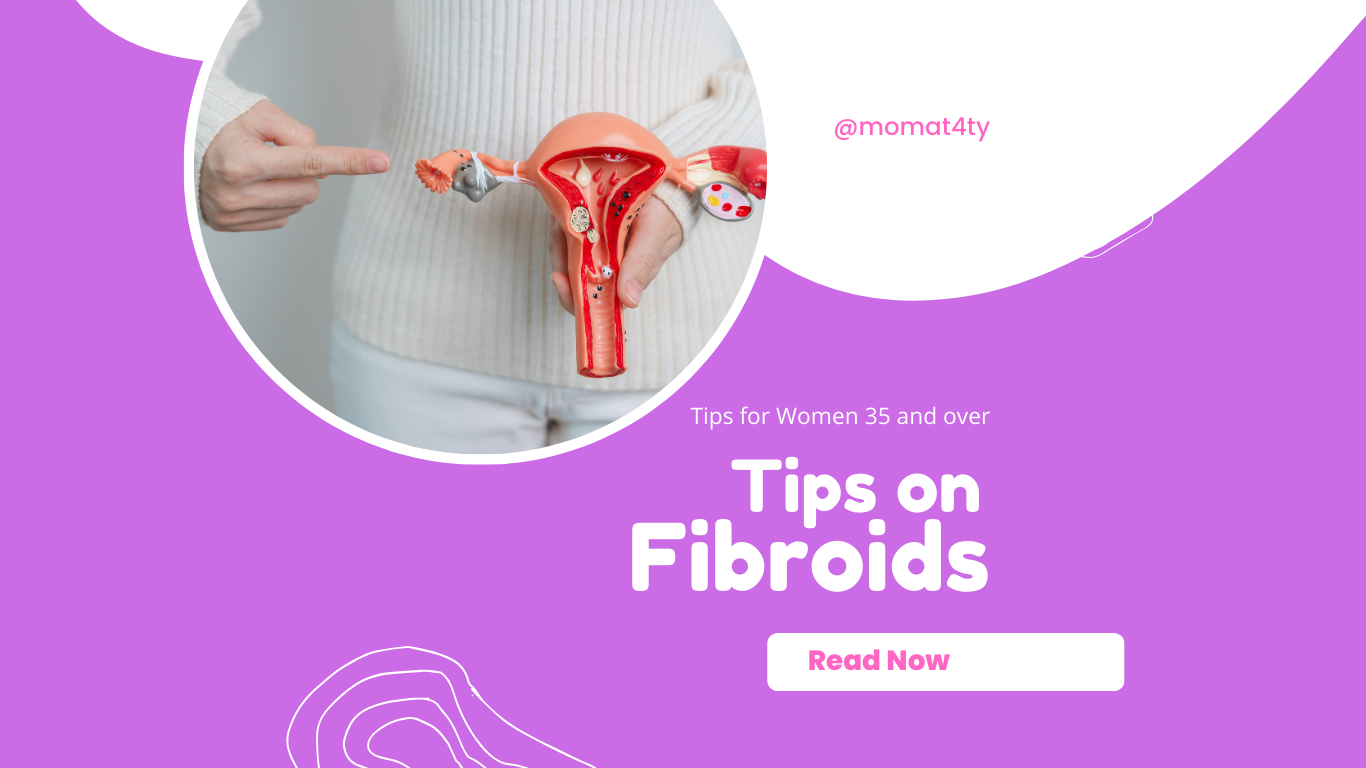Fibroids, or uterine leiomyomas, are non-cancerous growths that develop in or on the uterus. While many women may have fibroids without symptoms, they can affect fertility and pregnancy, especially for women over 35 who are trying to conceive. In this post, we’ll explore the signs of fibroids, what to avoid to prevent their growth, how to manage them, and how they may impact your fertility journey.
Signs of Fibroids
Fibroids often go unnoticed because not all women experience symptoms. However, when they do, the most common signs include:
• Heavy or prolonged menstrual periods
• Pelvic pain or pressure
• Frequent urination
• Pain during intercourse
• Constipation or bloating
• Lower back pain
If you experience any of these symptoms, especially if they seem to worsen over time, it’s important to speak with your doctor. Early detection and treatment can help manage symptoms and reduce complications.
What to Avoid to Prevent Fibroids
While the exact cause of fibroids is not fully understood, research suggests that certain lifestyle factors may contribute to their development. Here are some things to avoid if you’re concerned about fibroids:
- Excessive Red Meat Consumption: Diets high in red meat (like beef and ham) are linked to an increased risk of fibroids. I know Nigerian meals are not complete without meat but my dear, think of your health first especially if motherhood is your dream. Opt for lean proteins like fish, chicken, and plant-based sources instead.
- High-Fat Dairy: Some studies suggest that a high intake of full-fat dairy products can increase fibroid risk. I know we like milk and powdered milk for that matter but choose low-fat or plant-based alternatives when possible.
- High-Stress Levels: Chronic stress can impact hormonal balance, which may contribute to fibroid growth. Living in cities can be very stressful however, practice relaxation techniques like yoga, meditation, or deep breathing exercises to help you manage the stress.
- Hormonal Imbalance: Avoid overuse of hormonal contraceptives without medical advice, as they can sometimes exacerbate fibroid growth. I always advise that we should follow up with our doctors, find out all you need to know about the drugs they give you and let them know you are trying for a baby or wish to get pregnant in the future, so they mind the drugs you are given. Remember, especially in Nigeria, our medical team can be negligent so be diligent.

Managing Fibroids
If you’ve been diagnosed with fibroids, there are several ways to manage them, depending on the severity of your symptoms:
Dietary Changes: A balanced diet rich in fruits, vegetables, whole grains, and healthy fats can help reduce inflammation and support overall reproductive health. Incorporate foods that are high in fibre and low in estrogen-promoting substances.
Medications: Hormonal treatments may help shrink fibroids or control heavy bleeding. Always consult with your doctor to determine the best course of action.
Exercise: Regular physical activity can help manage weight and reduce estrogen levels, which can slow fibroid growth. Aim for at least 30 minutes of moderate exercise most days of the week.
Surgical Options: In cases where fibroids cause significant discomfort or fertility issues, surgical treatments like a myomectomy (removal of fibroids) or uterine artery embolization may be recommended.
How Fibroids Can Affect Fertility
Many women with fibroids are able to conceive and have healthy pregnancies, but fibroids can sometimes pose challenges. Here’s how fibroids may affect fertility and pregnancy:
Difficulty in Conception: Large fibroids, especially those that grow inside the uterine cavity, can block the fallopian tubes or interfere with the implantation of a fertilized egg, making it harder to conceive.
Pregnancy Complications: Fibroids can increase the risk of certain complications during pregnancy, such as miscarriage, preterm birth, and placental abruption. They can also cause discomfort due to their size and location.
Changes in Uterine Environment: Submucosal fibroids, which grow inside the uterus, can distort its shape and affect the ability of an embryo to implant properly.
Can You Still Get Pregnant with Fibroids?
Yes, many women with fibroids can still get pregnant, especially if the fibroids are small and do not interfere with the uterine lining or fallopian tubes. However, for women over 35, age-related fertility decline can complicate matters. If fibroids are causing difficulty in getting pregnant, medical intervention such as surgery or fertility treatments like in vitro fertilization (IVF) may be recommended.
For women over 35 who are trying for a baby, fibroids can present additional challenges, but they do not necessarily prevent pregnancy. Understanding the signs of fibroids, adopting a healthy lifestyle, and consulting with your healthcare provider about treatment options can help manage the condition and improve your chances of conceiving.
If you’re concerned about fibroids and their impact on your fertility, don’t hesitate to seek advice from a gynaecologist or fertility specialist. The earlier you address the issue, the better your chances of a successful pregnancy.
Share this with a lady who needs to know more about fibroids and do look out for our next article which is about fibroids during pregnancy.
Till next time!

